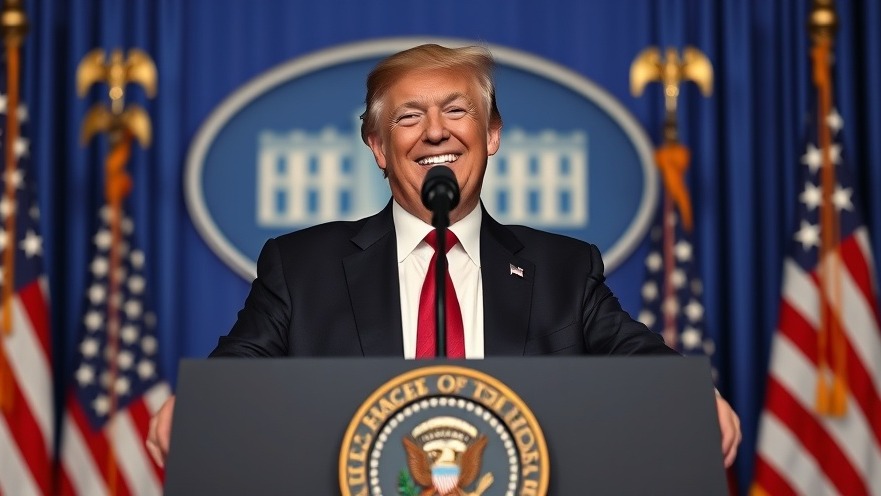
Trump Makes Light of Press Room Requests
In a recent press conference, former President Donald Trump jokingly dismissed a reporter's suggestion for a larger and more comfortable briefing room, stating, "I don't want you to be comfortable." This quip not only illustrates Trump's personality but also highlights the ongoing contentious dynamics between him and the media. Such interactions aren’t merely humorous; they reveal the underlying tensions that shape the relationship between political figures and the press.
Understanding the Political Context
This humorous retort comes in the context of a broader conversation about media access and transparency during Trump's presidency. Press rooms have long served as critical venues for government accountability, yet they often reflect the political climate. By joking about the press's comfort levels, Trump reinforces a narrative of distrust and highlights the sometimes adversarial relationship between elected officials and journalists.
The Dynamics of Political Communication
Trump's banter illustrates a tactic often employed by politicians: using humor to deflect serious inquiries and diminish the stature of the press. While some may view this lightheartedness as endearing, others argue it detracts from important journalism and accountability. Such moments underscore the evolving landscape of political communication where humor and rhetoric can overshadow substantive issues.
The Media’s Response: Navigating Humor and Critique
Reactions from various media personalities post-conference indicate a mixed bag of amusement and criticism. Commentators like CNN's Dana Bash have referred to significant events, such as the January 6 Capitol riot, that underscore the need for responsible reporting and communication from public officials. Trump's remarks may serve to diminish the importance of serious dialogue on such topics, provoking a necessary discussion on media responsibility and the impact of political jokes.
Historical Context of Media Relations
The relationship between politicians and the media has historically been fraught with tension. From the Jefferson administration's battles with newspaper publishers to modern-day conflicts over fake news and media bias, this delicate balance has evolved over centuries. Trump's approach, marked by his staunch stances against perceived biases in reporting, indicates a contemporary shift towards more personal and direct confrontations.
Future Predictions: The Role of Media in Political Landscapes
As the political landscape shifts with upcoming elections, the role of media will likely remain pivotal. The tone and dynamics set by figures like Trump may influence how future leaders engage with journalists. A potential trend towards further polarization could either strengthen journalistic integrity or lead to increased mistrust in media sources as some politicians navigate their communication strategies in response to public sentiment.
Engagement Strategies for the Audience
Understanding these interactions invites readers to reflect on their own consumption of news. Engaging in critical thinking about media reports not only fosters informed citizens but also empowers individuals to question narratives whether humorous or serious. Harnessing the tools to discern fact from opinion equips everyone to participate constructively in political discourse.
Call to Action: Foster Critical Engagement
As discussions around media engagement continue, consider examining your own media consumption habits. Are you prepared to question the narratives presented to you? Engaging critically with the news is not just for journalists—it’s a civic responsibility. Stay informed and hold your leaders accountable by actively participating in discussions both online and in your community.
 Add Element
Add Element  Add Row
Add Row 



Write A Comment